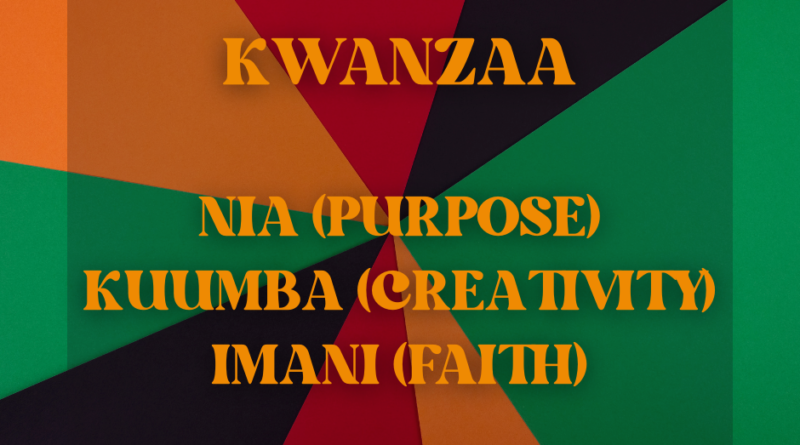Future Of The Pan African Art Movement
December 30, 2023
This new era of the Pan African Art Movement continues a legacy of promoting shared African identity and creativity.
In the spirit of Kwanzaa, artists and creators worldwide document and define Pan African liberation. From poets and filmmakers to sculptors and multimedia visionaries, the Pan African Art movement of the early 20th century has inspired a new generation of artists exploring themes related to African culture and history.
Harnessing the power of Nia (Purpose), Kuumba (Creativity) and Imani (Faith), the Pan African Movement “seeks to unite African cultures and promote a sense of shared identity, history, and creative expression,” according to MoMAA.
The era saw the emergence of African art festivals, such as the first-ever World Festival of Negro Arts in Dakar, Senegal, in 1966 and the Second World Black and African Festival of Arts and Culture in Lagos, Nigeria, in 1977. Notable key figures of the time include Cuban artist Wifredo Lam, whose artistic style incorporated elements of Cubism, Surrealism, and African artistic traditions. Ghanaian artist El Anatsui, whose innovative sculptures from discarded materials have been exhibited worldwide, and Ethiopian artist Gebre Kristos Desta, known for his abstract paintings that explored Ethiopian history and culture.
This era of the movement continues a legacy of promoting shared African identity. Here are three creatives who immortalize the successes of the past and build the modern Pan-African movement.

Botswana-born artist Meleko Mokgosi is well-praised for his Botswana multimedia works that embody complex views of history and influential critiques of Pan-Africanism and current postcolonial moments. In Pan-African Pulp, for instance, Mogosi explores the history of Pan-Africanism and Detroit’s deep history of activism, where organizations such as the Black Nation of Islam, The Republic of New Afrika, Shrine of the Black Madonna (Black Christian Nationalism), Pan-African Congress, and United Negro Improvement Association were organized.
Meleko Mokgosi explores gender equality and the role of women in Botswana circa 1981 in, “The Ease of Fiction.” #nowonview pic.twitter.com/MQ8YARMl7z
— California African American Museum (@CAAMinLA) January 29, 2017
Of Sierra Leonean descent, Kadija George Sesay is a British scholar, literary activist, editor and publisher. She is the founder/publisher of SABLE LitMag and SABLE LitFest, as well as the Publications Manager for the Inscribe imprint of Peepal Tree Press, which publishes work by Black British writers. Sesay is also the author of the poetry collection, Irki and her forthcoming collection is entitled The Modern Pan-Africanist’s Journey. Her ambitious efforts of curating experiences are showcased in her establishment of the Mboka Festival of Arts, Culture and Sport in The Gambia, and founder of the ‘AfriPoeTree’ app. is on the board of African Studies Association (UK) and chair of the Yaram Arts. Sesay is highly sought after to judge writing competitions.
Inscribe is a successful writer development programme aimed at writers of African and Asian descent and is run by co-directors Kadija George and Dorothea Smartt. Our new anthology of Black British poetry, #Filigree, is due to be published this autumn! #IWD2018 pic.twitter.com/fKvqTKM6Q9
— INSCRIBE Writers (@INSCRIBEWriters) March 8, 2018
Akinsanya Kambon is a Pan-African artist, activist, former Black Panther and co-owner of a Pan-African art studio and gallery. Having worked in clay for almost four decades, Kambon creates ceramic sculptures in the form of vessels, figures, and wall plaques. His works embody the voices of the Black diaspora, including African histories and mythologies, as well as narratives of violence and revolution from throughout Africa and the Americas.

